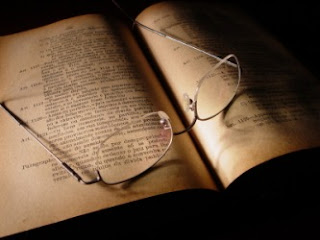If you're the parent of a teenager pouting her way through high school English, she may be asking you why she needs to take literature classes. Teenagers today get much of their news, information, and social fulfillment online in short paragraphs and 140-character text messages, so they may find it onerous to read works of great literature that can run 500 pages or more. However, literature has been important for all of recorded history, and continues to be relevant today for several reasons.
Literature gives us insight into the human condition: the commonality of events that occur in our lives; emotions that we all feel; and the things that give our existence meaning. In addition to making us think about human experiences, literature provokes emotional responses in us and can provide catharsis. Literature also gives us a shared vocabulary of stories that we can use as a frame of reference when discussing our own experiences and those of others.
Literature provides more mundane benefits, as well. Reading well-written books can help us learn how to write a good story, teach us new vocabulary, and even offer examples of correct spelling and punctuation. Social historians can also learn about everyday life from descriptions of objects, practices, and events in literature. Realistic portrayals of gritty or unpleasant events in literature have often gotten great works banned.
Defining Literature
Although the word literature can refer to any creative writing, we usually consider literature to be writing with lasting value that is well-written and evokes a powerful emotional response, as opposed to popular fiction, which is subject to the whims of the book-buying public.
Which books qualify as literature is subjective, but generations of professors and devoted readers have codified lists of books that most people accept to be great works of literature. One of the main qualifications for being considered great literature is for a book to remain interesting and relevant over the course of time, since that indicates that it transcends petty details of everyday life to address the fundamental human condition. We won't know for another fifty years or so whether the Harry Potter series will make the cut, but John Steinbeck's The Grapes of Wrath is a consummate example.
Literature in the Digital Age
There is a reason that more than 250,000 electronic books were downloaded from Apple's iBookstore on the very first day of the iPad's release: people still read.
Despite the fact that your great-grandparents wouldn't recognize an e-book reader as a book, they are a great development for getting books into the hands of people who otherwise might complain about being separated from their electronic life for even a few minutes at a time (e.g., your teenager). Having great literature at her fingertips may encourage your teenager to give reading (longer passages than 140-character content chunks) a chance. Once the books are in her hands (in any format), she'll have the opportunity to fall in love with Mr. Darcy, have an adventure with Tom Sawyer, and shout out loud at Romeo and Juliet for being so impetuous. Literature concerned with the human condition never loses its power.
Share Reading with Your Children
If the reasons above have failed to persuade the recalcitrant reader, give her a copy of your favorite great work. Read it together, or just point out your favorite parts. Discuss the reasons the book speaks to you, and the impact it has had on your life. Most of all show that a great piece of writing still breathes, no matter how long ago its author died.
High school English class may pull some of the joy from reading with lengthy assignments and vocabulary drills, but assure your teenager that even the most boring teacher cannot kill literature.
Blogroll
About
Popular Posts
-
Johan August Strindberg, the foremost Swedish playwright and a major influence on modern drama, was born in Stockholm on January 22, 1840, t...
-
She was one of those pretty and charming girls born, as though fate had blundered over her, into a family of artisans. She had no marriage p...
-
Act I Script of Act I Julius Caesar The play by William Shakespeare Introduction This section contains the script of Act I of Julius ...
-
The Bindermeyer Theory By: Nicholas Wardigo CAST OF CHARACTERS EDWIN BINDERMEYER � A scientist in his late thirties, bookwormish, wear...
-
If you're the parent of a teenager pouting her way through high school English, she may be asking you why she needs to take literature c...
-
In Verona, Sampson and Gregory (Capulet servants) complain that they will not put up with insults from the Montague family. Abram and Baltha...
-
Knowing that Mrs. Mallard was afflicted with a heart trouble, great care was taken to break to her as gently as possible the news of her hus...
-
Studying in college is very different from learning at secondary school. Because the difference is that, many students who find it difficult...
-
Gammer Gurton's Needle is one of the earliest comedies written in the English language. It is thought to have been produced in 1533. an...
-
Went to campus, Then, collected my call assignment. After that, i went to my town at 12:00 PM. I miss my family and miss the environment...
Senin, 27 Februari 2012
Langganan:
Posting Komentar (Atom)





0 komentar:
Posting Komentar